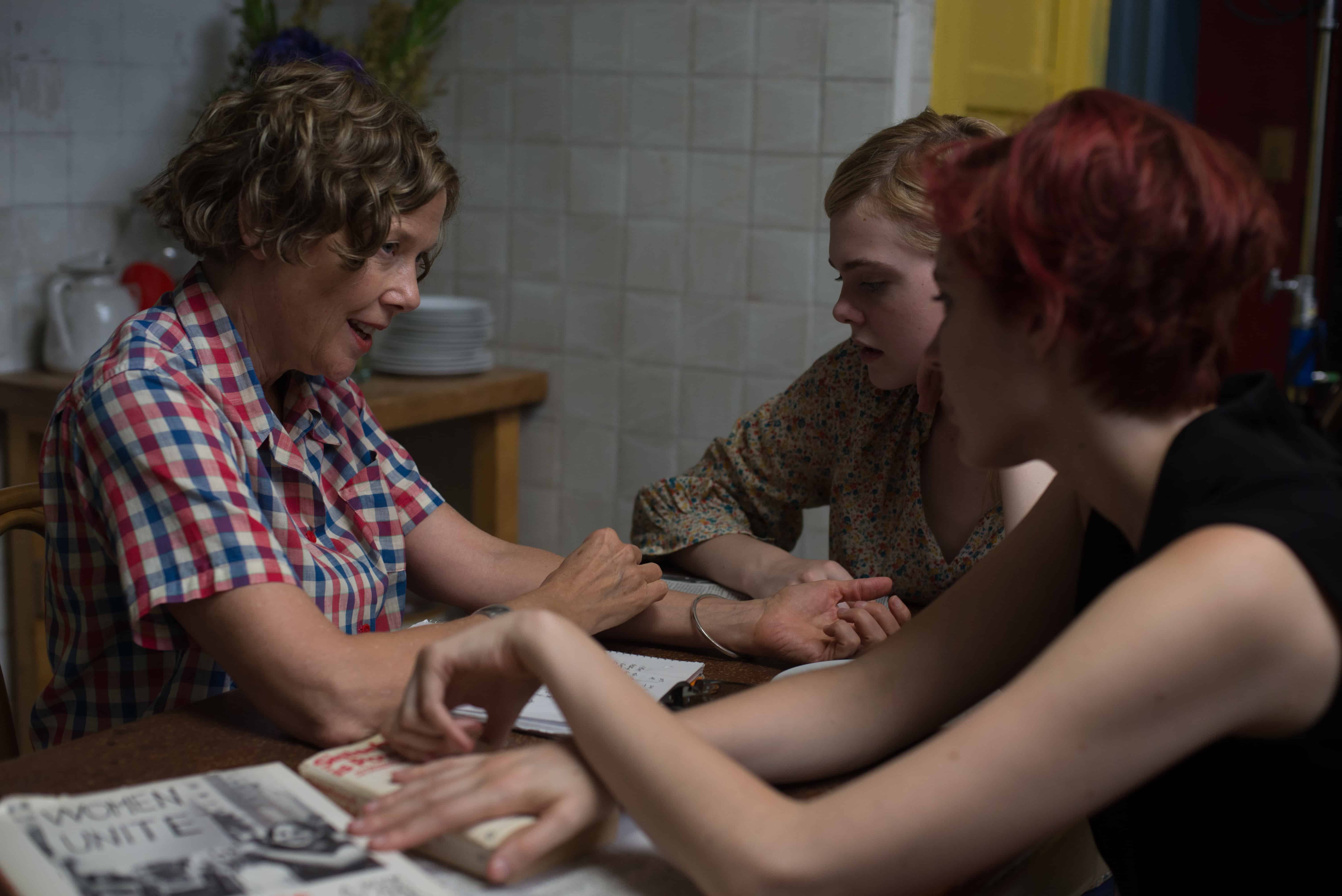What does happiness feel like? And what does a life fully lived look like? 20th Century Women dares to ask these critical questions, and is as funny as it is philosophical and emotional in its response.
It’s 1979, and divorced California mom Dorothea (Annette Bening) is struggling to find happiness and, more pressingly, raising her son Jamie (Lucas Jade Zumann). “Don’t you need a man to raise a man?” she wonders early in the film. Nonetheless, it’s the women in her life whose help she enlists, asking them to share their lives with Jamie, hoping that they can help keep him on the right path. Figuring prominently are Abbie (a fantastic Greta Gerwig), an artist and fellow boarder in the somewhat crumbling, unpretentious mansion in which Dorothea and Jamie live, and Julie (Elle Fanning), Jamie’s best friend – a sexually promiscuous, deeply contemplative 17-year-old.
Both agree, in their own ways, to help Dorothea raise Jamie, exposing him to the great struggles and triumphs of their lives. Abbie, a young photographer recovering from cervical cancer, is completely open with Jamie; she brings him to her oncology appointments, to ‘artsy’ parties, and makes him a cassette of songs she wished she’d had when she was his age. She even turns Jamie into a fledgling feminist, loaning him some of her favourite texts, including Our Bodies, Ourselves, leading Jamie to contemplate female sexuality and how it relates to his ability to be a good man.
Like Jamie, Julie struggles with questions of identity and experience. She also shares her life with him, describing her various sexual encounters to him as they lie together under the covers on his mattress — platonically, much to Jamie’s disappointment. As time passes, and Jamie garners experiences shown to him by Abbie and Julie, he begins a process of rebirth, ultimately emerging as a young adult with a budding identity, ready to experience the world. Simultaneously, Dorothea allows herself to be drawn to new experiences as fellow boarder William (Billy Crudup) shows her platonic love and understanding.
20th Century Women is a wonderful film that focuses on the importance of the present above all else. It uses life in the present as a way to look to the future, by presenting women at various stages of their lives, facing various personal struggles, and learning to overcome them with hope.
When Abbie finds out from her oncologist that it’s unlikely she’ll ever be able to have children, she comforts herself by saying “I’m going to be okay,” and immerses herself in the artistic world she loves. At various points throughout the film, each character expresses the impossibility of imagining the future, and the importance of experiencing the present: William meditates, Abbie takes photographs, and Julie has sex, which, for her, is not about pleasure or indulgence, but about the minutiae of the experience.
The characters stumble through their lives, and allow Jamie and Dorothea in on this struggle. While acknowledging that life gets tough, the film maintains its positive, forward-looking nature to the very end. 20th Century Women’s message is that, no matter what the future holds, the key is to keep looking forward, not backward.


